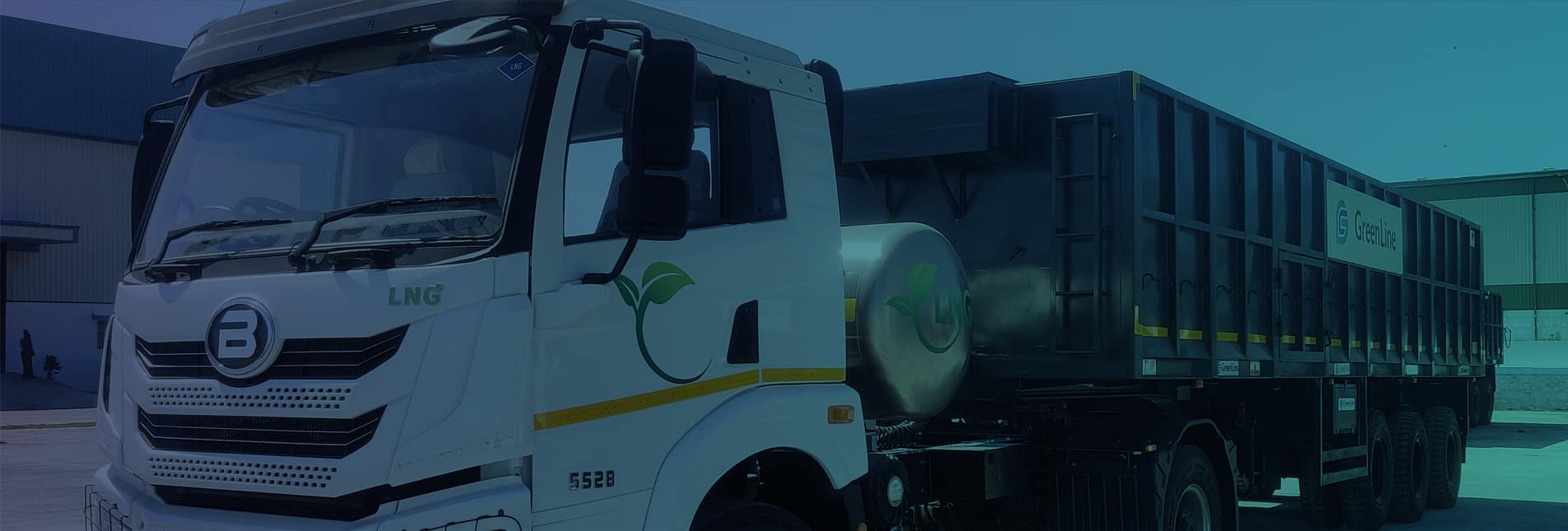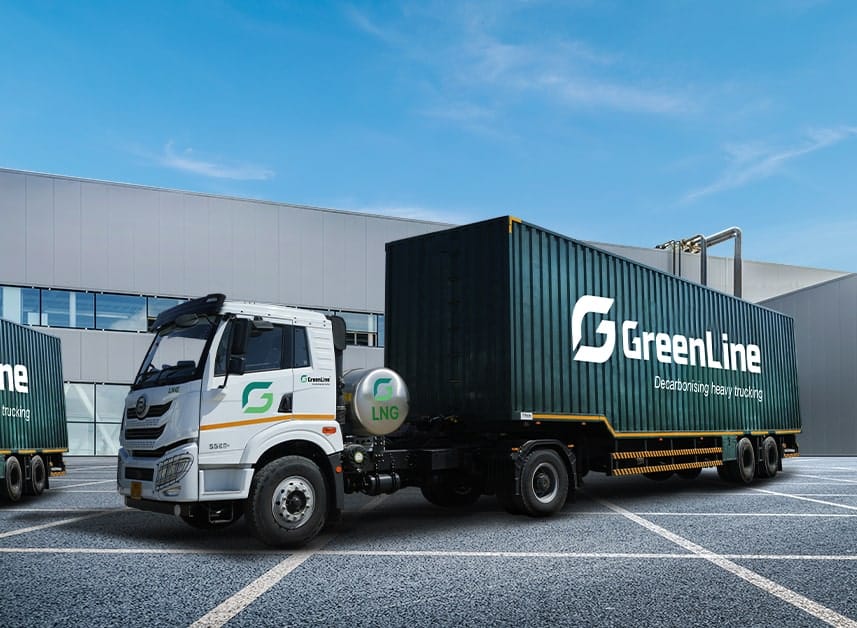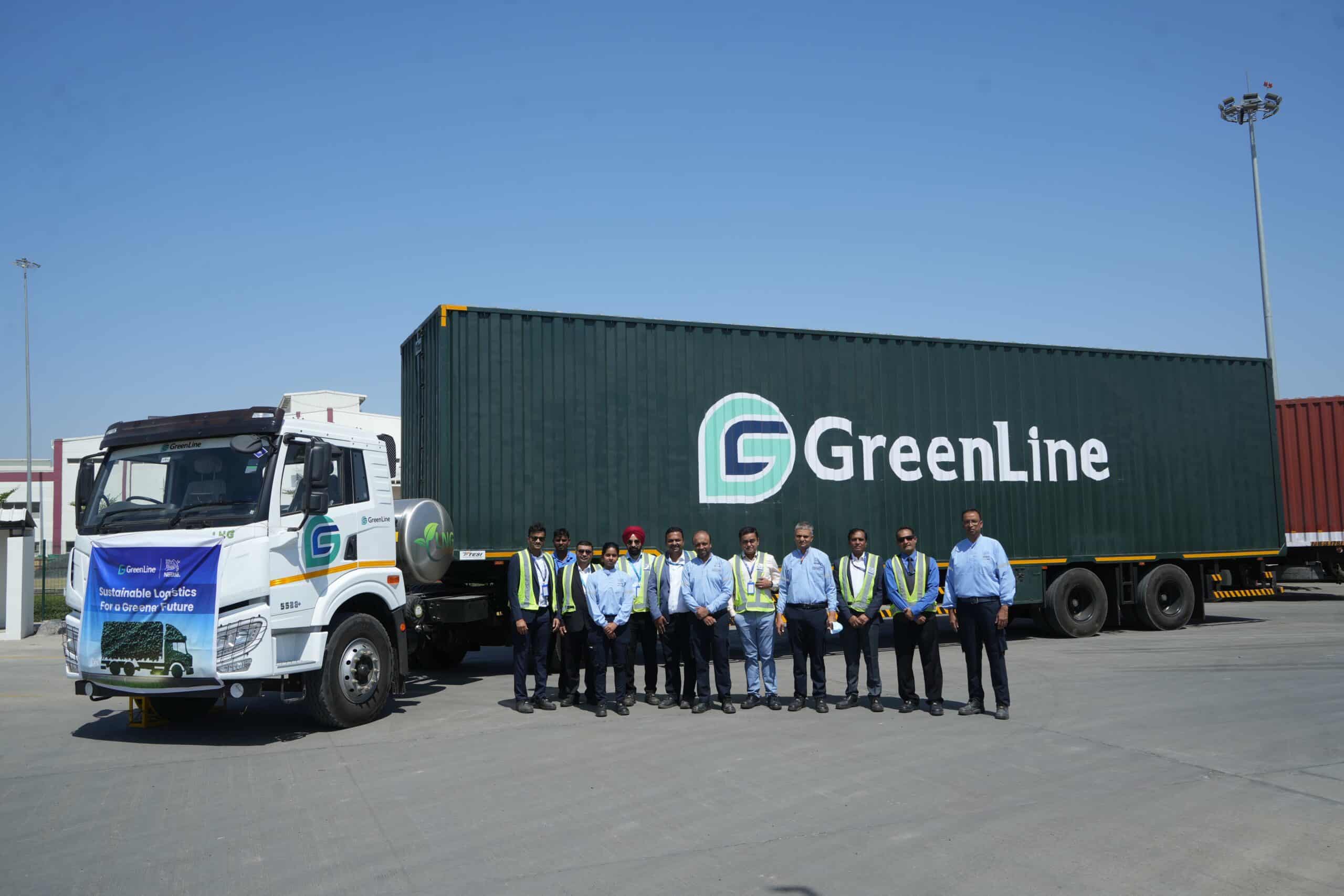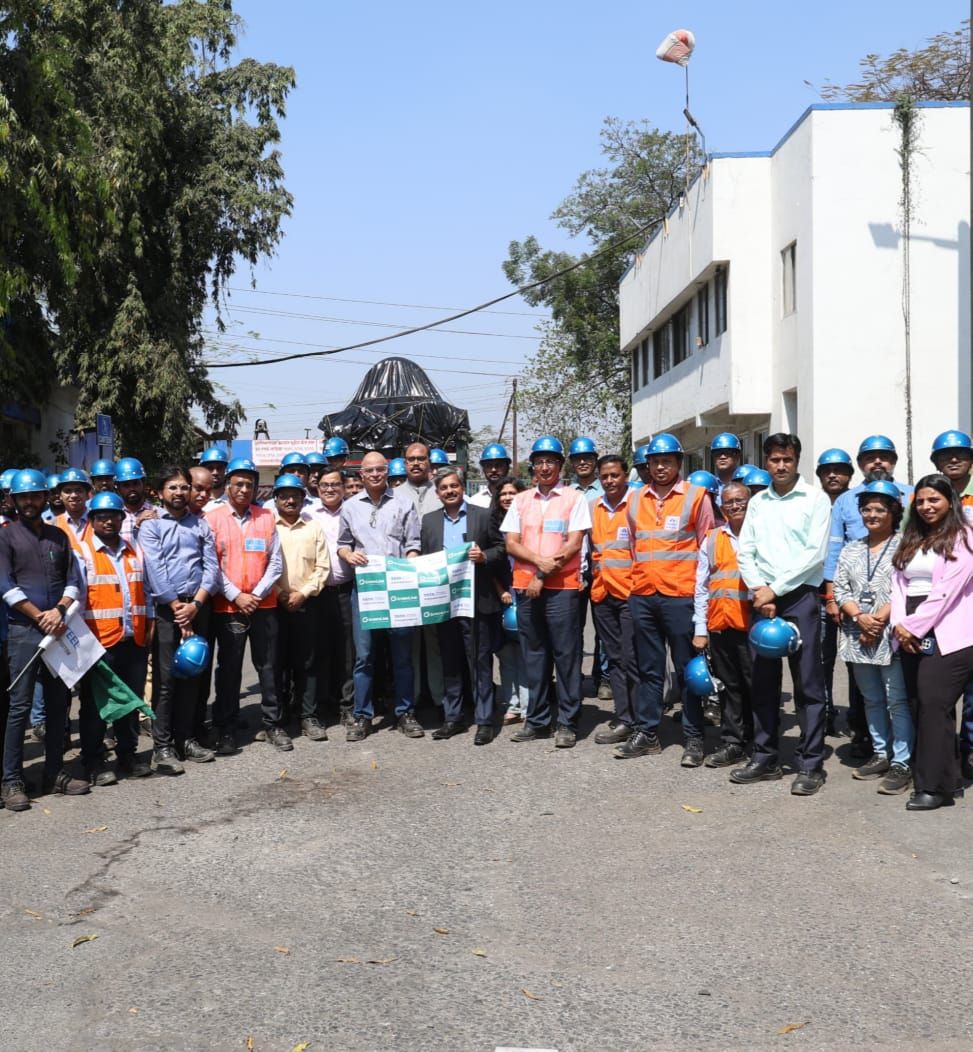GreenLine transforming Indian logistics with LNG truck fleet
The company is catering to the pressing need for a transitional fuel to address the urgent necessity of greener alternatives.
GreenLine Mobility Solutions, an initiative backed by Essar, stands at the forefront of revolutionising India’s road logistics sector with the introduction of a ground-breaking fleet of LNG-powered long-haul trucks. The establishment of GreenLine was rooted in a vision aimed at decarbonising heavy trucking. “Completely phasing out fossil fuels from trucking will require significant time, effort, and investments,” says Anand Mimani, CEO, GreenLine Mobility Solutions Ltd. “Hence, there is a pressing need for a transitional fuel to address the urgent necessity of transitioning to greener alternatives, which is where LNG plays a crucial role.” He shares more in an interview with Manufacturing Today.
Elaborate on how LNG technology fits into the company’s initiatives and its impact on reducing carbon emissions?
GreenLine’s state-of-the-art LNG-powered trucks are manufactured by Blue Energy Motors, marking India’s inaugural entry into LNG-powered heavy-duty trucks. Our LNG-powered trucks deliver considerabe reductions in toxic emissions compared to diesel, with cuts of up to 30 per cent in CO2, up to 100 per cent in SOx, up to 59 per cent in NOx, up to 91 per cent in Particulate Matter, and up to 70 per cent in CO. Additionally, they provide our customers access to the latest technology, such as a central control and command center for continuous tracking and monitoring.
Through exclusive collaborations and the integration of cutting-edge technologies for both LNG refuelling stations and trucks, GreenLine has created an interconnected ecosystem. This enables the company to deliver cleaner, highly effective, and efficient green mobility solutions to customers nationwide.
Natural gas, particularly LNG, is gaining prominence as an alternative fuel in the transportation sector. How does LNG contribute to building a resilient and sustainable logistics ecosystem?
The cleaner combustion of LNG significantly reduces pollutants such as nitrogen oxides, sulphur oxides, and particulate matter, leading to enhanced air quality. Additionally, the adoption of LNG helps diversify fuel sources, potentially reducing reliance on oil imports and thereby strengthening energy security. This transition to LNG has a profound impact on logistics – it improves supply chain resilience, necessitates infrastructure development, and optimises operational efficiency. By promoting a cleaner and more diverse fuel option while driving infrastructural improvements, LNG fundamentally bolsters the sustainability of the transportation sector’s logistics ecosystem.
How does GreenLine strategise and execute effective measures to substantially reduce greenhouse gas emissions through the adoption of LNG-powered heavy truck fleets?
GreenLine employs a comprehensive strategy to significantly reduce greenhouse gas emissions through the adoption of LNG-powered heavy truck fleets. The company’s approach integrates cutting-edge LNG technology by collaborating with manufacturers like Blue Energy Motors, ensuring the inclusion of advanced, low-emission vehicles in their fleet.
Moreover, GreenLine forges exclusive partnerships within the LNG ecosystem, concentrating on infrastructure development for LNG refueling stations and securing a consistent fuel supply to establish a reliable and accessible network. By strategically deploying LNG-powered trucks across diverse logistics routes and sectors, the company optimises its usage to minimise environmental impact.
GreenLine actively engages customers and stakeholders, emphasising the environmental benefits of LNG adoption and encouraging the transition from traditional fuel-dependent logistics. The company has already joined hands with Hindustan Zinc, Tata Steel, Reliance Industries, UltraTech Cement, Dalmia Cement, JSW Steel, JK Lakshmi Cement, JSW Cement, JSPL, Nestle, Delhivery, and many others enabling them to lower their carbon footprint.
Furthermore, stringent monitoring systems are in place to track emissions and ensure compliance with environmental standards. These systems facilitate continuous optimisation for further reductions in greenhouse gas emissions.
Could you outline some of the key advantages and challenges associated with transitioning from conventional diesel-powered fleets to LNG-fuelled heavy trucks in terms of operational efficiency, costs, and environmental impact?
As the transportation industry explores greener alternatives, the transition from conventional diesel-powered fleets to LNG for heavy trucks emerges as a potential game-changer. The environmental advantages are noteworthy, clearly demonstrated by the substantial decrease in greenhouse gas emissions compared to diesel. Moreover, the potential for cost savings through enhanced fuel efficiency brings optimism to the industry. However, this transition encounters several challenges that demand careful attention.
Among these challenges are initial investment costs, scarcity of LNG refuelling infrastructure, limitations in vehicle range and payload capacity, technical intricacies associated with adopting LNG technology, fluctuating prices of LNG, and concerns regarding methane emissions throughout the supply chain. Recognising the fundamental challenge, Essar has taken a distinctive approach by investing in key entities – Blue Energy Motors, Ultra Gas & Energy, and GreenLine Mobility Solutions – aiming to harmonise all three critical elements of the ecosystem.
Amid this transition, striking a balance between challenges and environmental gains becomes crucial, emphasising the need for thorough planning and strategic execution in adopting LNG-powered heavy trucks sustainably.
How does GreenLine envision the future of LNG adoption in the logistics sector and what initiatives or collaborations is the company undertaking to further promote the use of LNG in heavy trucking operations?
GreenLine actively promotes LNG adoption in heavy trucking operations by strategically collaborating with ESG-conscious corporates in India. Partnerships with companies like Hindustan Zinc Limited, Tata Steel, Reliance Industries, UltraTech Cement, Dalmia Cement, JSW Steel, JK Lakshmi Cement, JSW Cement, JSPL, Nestle, Delhivery, and numerous others demonstrate a robust network focused on fostering LNG utilisation.
Additionally, the company focuses on developing a resilient distribution network, exploring long-term gas supply agreements, and emphasises the importance of a comprehensive ecosystem involving OEMs, fuelling infrastructure, and fleet operators. This concerted effort highlights GreenLine’s commitment to driving widespread LNG adoption in the logistics sector, aiming to significantly reduce carbon emissions and enhance sustainability.
How does the introduction of LNG-fueled heavy trucks align with the overall carbon neutrality mission embraced by GreenLine and contribute to India’s broader efforts towards reducing greenhouse gas emissions in the transportation sector?
GreenLine is deeply committed to fostering sustainable practices, and the introduction of LNG-fuelled heavy trucks seamlessly aligns with our mission towards achieving carbon neutrality. Embracing LNG as an alternative fuel underlines our dedication to reducing emissions within the transportation sector.
The adoption of LNG as a fuel for heavy trucking brings about a substantial reduction in pollutants such as sulphur oxides, nitrogen oxides, carbon monoxide, and particulate matter. This strategic shift to LNG signifies a pivotal step toward a cleaner, more environmentally conscious fleet, in line with our mission to embrace eco-friendly technologies.
Moreover, transitioning to LNG-powered heavy trucks enables us to make a significant contribution to India’s broader agenda of reducing greenhouse gas emissions in transportation. GreenLine recognises the crucial role of cleaner fuels in driving sustainability efforts. Therefore, we actively engage in initiatives that support our corporate commitment to carbon neutrality and align with India’s aspirations for a greener future in the transportation sector.
What specific outcomes or positive impacts has GreenLine witnessed since the adoption of LNG-powered heavy truck fleets in terms of operational performance, emissions reduction, and overall sustainability goals?
Seeing the switch to LNG-powered trucks has made a big difference for us in how we operate, cut emissions, and work towards sustainability. These trucks do not just follow environmental rules; they set a new standard. They produce fewer harmful particles and gases, which is good for public health. The trucks can go far without refuelling, up to 1,400 km, making long trips easier. Safety is a big deal for us, our trucks are equipped with six cameras setup, Level 1 – Advanced Driver Assistance Systems (ADAS) and Driver State monitoring, we have seen a real difference in how safely we drive. Using geofencing to plan routes has also helped cut emissions. As we upgrade our technology, choosing LNG for our trucks is not just a move; it shows we are serious about being responsible. Plus, we are proud to be helping other companies reduce their Scope 3 emissions, playing our part in making things cleaner and safer.
Can you shed light on the challenges or barriers that GreenLine encountered during the integration of LNG technology and the strategies employed to overcome these challenges?
GreenLine had encountered various challenges in integrating LNG technology, including the insufficient LNG refuelling infrastructure, limited availability of LNG-powered vehicles, public perception issues, and ensuring a reliable supply chain for LNG fuel. To address these hurdles, we implemented strategic initiatives. Collaborating closely with fuel providers has been instrumental in accelerating the development of LNG refuelling infrastructure. Our collaboration with Blue Energy Motors focuses on enhancing the availability of LNG-powered vehicles with long driving range up to 1,400 km in one fill, thereby ensuring a more diverse and robust fleet. In tackling public perception challenges, we have launched robust awareness campaigns highlighting the environmental benefits of LNG technology, aiming to enhance its acceptance among the public. Additionally, we have secured long-term contracts with reliable LNG suppliers and diversified our sources to maintain a dependable supply chain. These measures reflect our commitment to overcoming obstacles and successfully integrating LNG technology into our operations for a sustainable future.










